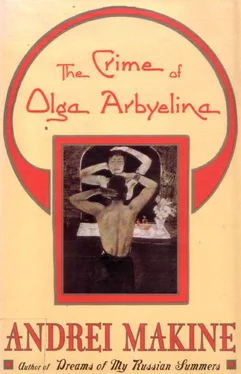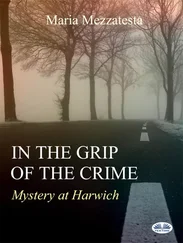She felt as if she were running from one woman to the next; recognizing them; running straight through a day, a room, a compartment in a railroad car.
It was as she continued running that she realized she was still not asleep…
Then she pushed open the little window between the bookshelves. The freshness of the night made her nostrils tingle. The yellow light of the lampshade sealed off the darkness, made it gleam. There was just this bare branch reaching toward the window that emerged from the night, surprised her with its living, watching presence. And from this branch, from this breathing of the night air she derived a timid but intense happiness, like the end of an illness. The clock read: five past midnight. She was still not asleep. She had not fallen asleep. She was not sleepy. The young man whirling about by the kitchen range, the infusion, the reptile-so all that was no more than a delirium. Born in the head of a woman who would not accept her used-up life. A woman who still hoped. A woman who refused to look forward to old age and die before death came. It was a madness that had lasted for less than an hour and had taken her to the frontier of a deformed world from which there is no return. The bizarre and suspicious movement of the boy in the kitchen? No more than one of those eccentric, often crazy gestures people make when they think they are alone in a room. "The potbellied man on my desk, that ink blot I always hide under a book, is a little whim of the same kind. Our solitary hours are made up of such routines…"
She closed the window and sat down at the narrow table once more. The night spread out before her and seemed endless. An ample amount of unoccupied time, that was offered to her personally. Her thoughts now had the limpidity of extreme insomnia. It remained for her to understand how she could have imagined what she had imagined behind that harmless gesture of an adolescent boy. To understand her own life at last.
• • •
A very few days after this sleepless night that seemed to have dissipated her oppressive doubts for good, Olga was to guess why the sleeping draft had not taken effect on that November evening. She realized that the powder the boy emptied into her infusion had not had time to dissolve and that, in her haste to give the lie to her horrible intuition, she had swallowed the liquid without stirring it… She realized everything.
But such were the intensity and richness of her passion already, the immensity and purity of her grief, that the unveiling of this little secret merely surprised her by its materialistic futility. A ridiculous chemical curiosity, a superfluous piece of evidence. A petty detail that was now quite meaningless within the wholly fresh surge of days and nights-that she no longer even dared to call "my life."
A great aristocratic mansion on two floors, a facade with four white columns and, most remarkable of all, the strange garden where they fasten pillows to the trunks of the trees. Yes, apple trees in blossom and white pillows bound with thick ropes… She is six; she already knows that the pillows are there to protect not the trees but this pale, capricious ten-year-old boy, her cousin. She has already noticed that the scratches and bruises she inflicts on herself when playing attract much less attention than a simple mosquito bite on the boy's arm. These oddities do not prevent her relishing the great sweetness of days that pass without seeming to. Every evening, at the moment when the sun lingers in the branches of the apple trees, the aroma of tea spreads over the terrace. An old servant strolls slowly from one tree to the next, collecting the pillows…
The other joys of her early life she notices too late, when only the memory of them remains. She grows up… And through overhearing the conversations of adults, discovers three astonishing things at almost the same time. The first: her mother will never get over the death of her husband, for "she loves him," they say, "even more than when he was alive." The second: she comes to grasp, very vaguely for the moment, the nature of her cousin's condition and senses that she herself is an unconscious participant in a mystery that is both disturbing and rare. And finally the third: she learns that her grandmother, whom they bury one fine day in spring, has always been "conservative and reactionary," words that her adolescent's tongue finds it hard to articulate but which she likes the sound of… The changes that ensue almost immediately after the funeral draw her attention to the simple pleasures now vanished: they no longer tie pillows to the trees; her cousin is fifteen; there is less fear for his health, and in the evening she no longer experiences that blissful moment when the old servant wandered slowly about in the garden untying the ropes, the moment when the smell of tea and the first coolness of the forest hung in the air…
But the new life has its advantages. Nobody pays attention anymore to this adolescent girl spending the summer here at Ostrov, on the estate inherited by her uncle. She is free to go to the village where the peasants no longer raise their caps when they encounter their former masters. The grown-ups congratulate themselves on this; in the days of the grandmother, the old reactionary, they say, the villagers used to bow down to the ground when they greeted her… They often talk about "the People" whom "all decent men" should enlighten, assist, and serve. This is a novelty too. Grandmother would speak of Zakhar, the shoemaker; the blacksmith, Vassily; or Stiopka the drunkard, who stole chickens. She also knew the Christian names of all their children. But she never spoke of "the People." Ostrov was one of the rare estates not to be set fire to during the uprising of the previous year. The adults see this as a consequence of the grandmother's despotism…
But the principal novelty is that they are living their lives in nervous, stimulating anticipation of novelty itself. It is the start of the new century, the "new era," as some of her uncle's friends call it. They rack their brains about how to accelerate the onward march- too slow for their taste-of a country that is itself too ponderous.
No doubt it is thanks to this impatience, this desire for transformations, that the idea of costume balls comes to them. Her uncle's best friend, the one who talks about the People more often than the others, generally dresses as a peasant. Moreover, Olga notices that they all talk about them with the greatest fervor on the eve of the celebrations that bring together the owners of the neighboring estates and city folk from the capital. It is really as if by indulging in this worthy talk they are seeking to excuse themselves in advance for the excesses of the ball…
She is twelve years old when, during the course of one of these balls, she comes upon an unusual couple in the little room that was once the lodging of the old servant, long since dead, whose allotted task was fastening the pillows to the trees. The man disguised as a peasant, the woman in a cloud of muslin, as a bat… The house feels as if it is rocking under waves of music, exploding with firecrackers, ringing with shouts of laughter. It is the first time she has passed unnoticed-her height, she is already tall, plus a simple black mask offer her an invisibility that intoxicates her. She encounters a knight raising the visor of his helmet to down a draft of champagne, a woman dressed as a toreador-Olga guesses that she is a woman from the contours of her body ("I'm grown up if I can guess that" she thinks, proudly)… In a drawing room there is a man stretched out on a divan, his shirt wide open, with a pale face that women are dabbing at with wet towels. In the room next door a table strewn with the ruins of dinner and one solitary guest, who has removed his wig and his mask and is eating, as if to say, "I don't care what anyone says. I'm tired, I'm hungry, and I'm eating!" Suddenly a motley group invades the room; there is an explosion of laughter, several hands pour different wines into his glass, pile his plate high with a mixture of foods. He objects, but his growls are stifled in his full mouth. The pranksters vanish, carrying off his wig… This theft makes her jealous; she, too, would like to make a little mischief. Coming upon a young magician asleep, Li, she carries off her magic wand. A few minutes later the wand slips from her grasp and the sound of it falling interrupts the counterfeit peasant and the woman in muslin in their wild and tender wrestling match. The man lying back in the armchair opens his eyes wide, the upper part of his body rears up. The woman straddling his belly twists and turns so as not to topple over… At the end of the corridor, in the hall with the dinner table: a servant takes a furtive swig from the glass of the man whose wig was stolen… On the staircase the grandmother's portrait has been hung upside down, head downwards… the favorite trick of guests at these celebrations. She unhooks the portrait and turns it the right way up. At that moment the counterfeit peasant appears at the other end of the corridor. She rushes toward the din of a piano, hoping to melt into a crowd of dancers. But the pianist is alone. It is an outrageously Moorish, drunken Othello, swamping the room with a flood of bravura music and despair. The white keys are all stained with black… Tiredness, the darkness, and the two glasses of champagne they gave her, without recognizing her face beneath the mask, make the ground in the garden unstable. The pearly foam of the apple trees invades the pathways, confusing her with the scented whiteness of their branches. Suddenly in the depths of these nocturnal thickets the galloping of a horse is heard. It draws closer, turning toward her, invisible, more and more threatening, seems to be pursuing her, ready to burst forth with the crash of broken branches. She presses herself against a tree trunk and at the same moment the horseman appears. It is an officer cadet who has come to the party with no thought of fancy dress; having quickly wearied of the wine-soaked merriment of the others, he has escaped and is now skimming through the garden and the sleeping fields. His black uniform sparkles with white petals. She realizes that he is the one she has been unconsciously searching for through all the rooms…
Читать дальше












